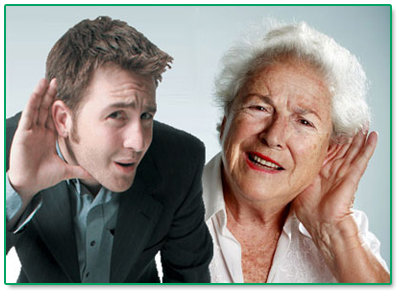Types of hearing loss
The three forms of hearing loss are Conductive, Sensorineural and Mixed hearing loss.
Conductive Hearing Losses
Conductive hearing losses result from an issue with the passage of sound through the outer and middle ear and common causes include: –
- Excessive build up of wax in the ear canal
- Damage or tears in the eardrum
- Fluid build up in the middle ear caused by illness or infection
While many people put their hearing difficulties down to “just have a build up of wax”, only 10% of hearing losses are conductive in nature.
A conductive hearing loss feels like the volume of the world has been turned down, but the clarity is still there. Symptoms may include: –
- Hearing in one ear better than the other
- Pain or pressure in the ear from fluid build up behind the ear
Conductive hearing loss is often treatable and causes mild to moderate in severity. In most cases, hearing is restored after the treatment.
Sensorineural Hearing Loss
The overwhelming majority of cases of hearing loss are sensorineural in nature. Originating in the inner ear, sensorineural hearing loss occurs due to damaged hair cells or nerves within the cochlea.
Sensorineural losses are commonly treated through the use of hearing aids or cochlear implants to correct the hearing.
There are a wide variety of reasons for this kind of loss including:
- Genetic predisposition
- Excessive noise exposure, both sudden and over time
- Ageing process
- Side effects of medicine
- Auditory nerve tumors
- Birth defects
- Infections such as meningitis and mumps
- Kidney disease
- Heart disease
Once damage, the hair cells (nerve endings) within the cochlea cannot repair themselves or be medically treated – therefore over 90% of cases of sensorineural hearing losses have no “cure”. Nevertheless, the use of hearing aids is of great benefit to people with sensorineural hearing loss.
Mixed Hearing Loss
As you may suspect, this is where a person has a combination of sensorineural and conductive hearing loss. For example, someone with inner ear damage due to long-term exposure to noise in his or her workplace could also be suffering a cold that has led to fluid build up in the ear canal.
Tinnitus
Many people suffer from a frustrating condition called Tinnitus, which is often related to hearing loss. Click here to learn more about tinnitus and the treatments available.
Causes of hearing loss
While age is certainly a factor in the development and severity of hearing loss, more than half of people in Australia who suffer from the condition are less than 65-years of age.
Studies and statistics have show that around 37 percent cases are due, at least in part, to long-term exposure to noise either through working conditions or lifestyle choices. This highlights the need for people to adopt hearing protection (such as custom fitted earplugs) when working in noisy environments.
The statistics also show other causes like, infection or injury at 17%, birth or antenatal loss at 4.4% and all the other causes contribute to 16.8% of hearing losses.
Why can I hear low-pitched sounds better than high-pitched sounds?
Nerves have different sensitivities to deformation of the sensory hair cells within the cochlea. A sound that has high frequencies of vibration will excite receptor cells near the opening of the cochlea, while a sound mostly containing low frequencies will stimulate cells at the end of the cochlea.
Over time the high frequency hair cell receptors receive more movement by the incoming pressure waves of the fluid inside the cochlea. For this reason, high frequency receptors are more prone to long-term damage than the low frequency hair cell receptors, which are more protected further up the cochlea.
Book a free hearing check today
If you believe that you may be experiencing the symptoms of hearing loss contact our specialists , it is important to do something about it as soon as possible. The brain’s ability to process sound will continue to diminish the longer that it made to go without stimulation, and this can lead to reduced effectiveness of treatments when people come to take steps to addressing their hearing loss.
Additionally, it is important to take steps to prevent the potential social and physiological affects of the condition. Call us or click here to make an appointment for a free hearing check.

